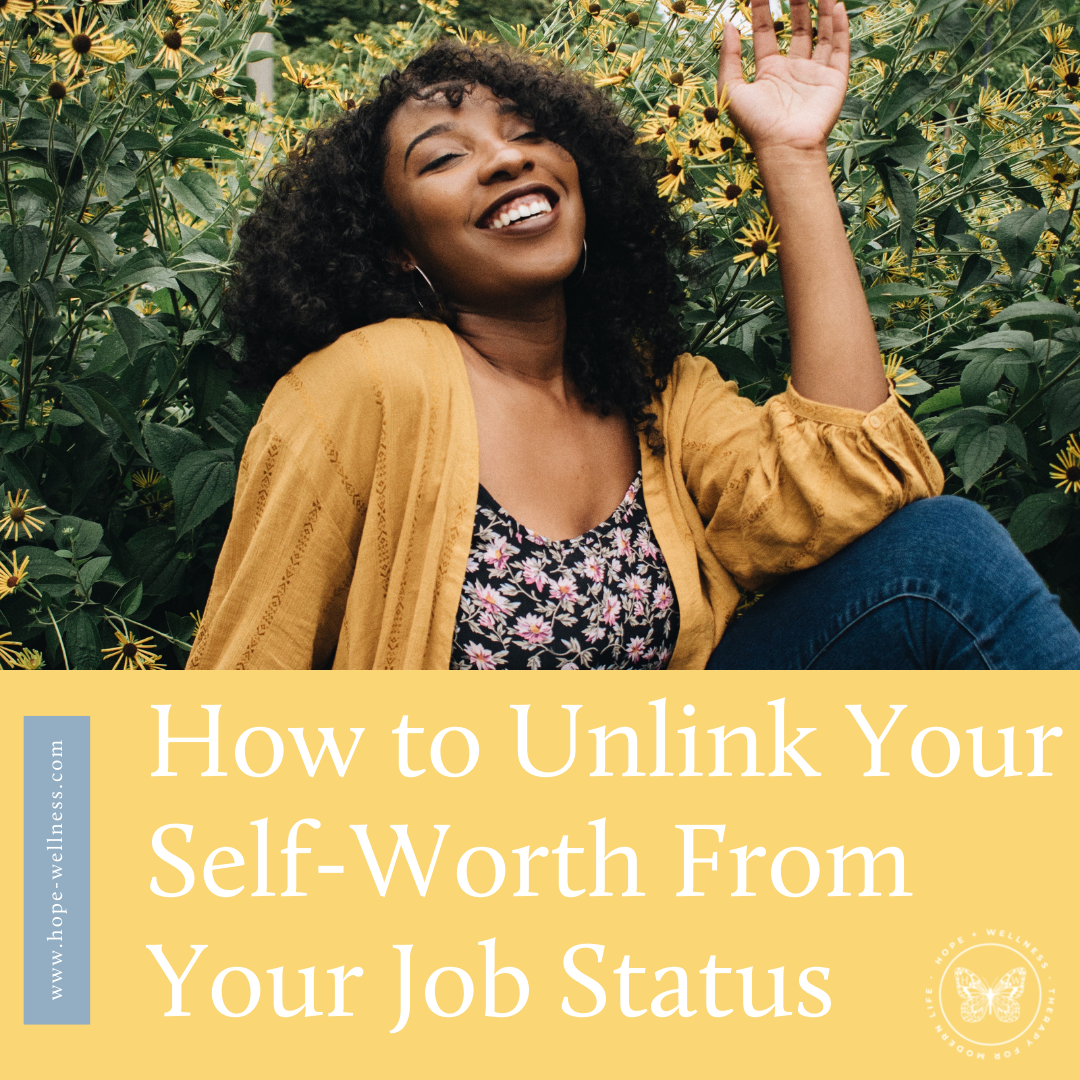
Hope +Wellness Blog
little snippets of advice for everyday challenges many people share

Self Kindness: Why it Matters & How to Cultivate It
No one is perfect, and no one’s job is to be perfect. When you make choices it’s important to know there are no right or wrong choices–there are choices that align with your goals and values and ones that don’t, but you always have an opportunity to make a new choice if one turns out not to match the life you’re trying to build. Self kindness is the first step to being okay with this process.

3 Tips for Working Through Shame
Shame is an emotion that we all feel, but we pretty much all hate to talk about. That’s because shame is designed to make you feel like there’s something wrong with you. Of course you wouldn’t want to talk about that! You aren’t doomed to be stuck in a shame spiral forever. Here are 3 ways to start working through shame.

Separating Healing from Healthism
A lot of language around health focuses on should’s. What habits we should have, what foods we should eat, how much media we should consume, how we should engage with our bodies, when we should be active and productive, how active and productive we should be, and on and on and on. But why? And, maybe more importantly, what if in centering our health and all of those “shoulds” we were actually getting in the way of really caring for ourselves?

4 Ways to Cope with Being Disliked
Whether we like it or not, it’s impossible to be liked by everyone. People are too different for everyone to get along all the time, so at some point we are all going to have to deal with being disliked.

5 Ways to Improve Your Self-Worth
Developing a healthy sense of self-worth can help you be more resilient in times of distress or change. When you understand that nothing can change the worth you have as a person, it can be a freeing feeling.

Can I Have a Healthy Relationship with My Body Without Loving It?
Living with chronic pain doesn’t mean you don’t deserve an emotionally healthy relationship with your body, even if that can’t be one filled with love.

Keeping Peace with Your Body During the Holiday Season
This month brings many opportunities for celebrations with it. From belated “friendsgiving” parties, various religious holiday celebrations, and New Year’s get-togethers, there is a lot of space for joy at the end of the year. But there’s also a lot of pressure and stress associated with this season! And one thing that people really struggle with is maintaining peace with their body and how it might change this season.

5 Ways to Cultivate Creativity
How creative are you? Creativity often brings to mind artists or musicians, but there are infinite ways to be creative. You might not consider yourself creative at all, and that’s okay. We tend to think of creativity as something that you either have or don’t, but the truth is that you can become more creative. Cultivating creativity can help boost your self-esteem, improve your work performance, and leave you feeling more fulfilled.

How to Unlink Your Self-Worth From Your Job Status
If you’ve spent most of your life tying your self-worth to your work, you’re certainly not alone. Here are some ideas for how to cope when you feel like your self-worth relies on your productivity or job status.
Hope+Wellness is a mental health practice specializing in the treatment of depression, mood, stress, and anxiety in kids, teens, and adults. This is a blog about living well and finding meaning and purpose in the face of difficult challenges. This is a blog about finding hope.
Archive
- ACT
- ADHD
- Acceptance
- Anxiety
- Authenticity
- Belonging
- Bipolar
- CBT
- Calming
- Change
- Chronic Illness
- Chronic Pain
- Communication
- Community
- Coping Skills
- DBT
- Dating
- Depression
- EMDR
- Emotions
- Entrepreneurs
- Friendship
- Gratitude
- Grief
- Health Psychology
- Hope
- Inspiration
- Intimacy
- Intuition
- Joy
- Letting Go
- Love
- Manic Depression
- Mindfulness
- Miscarriage
- OCD
- Parenting
- Personal Growth
- Positive Vibes
- Quotes
- Relationships
- Resources
- Self-Compassion
- Self-Reflection
- Services
- Sleep
- Spirituality
- Stress Management
- Stress Relief
- Suffering
